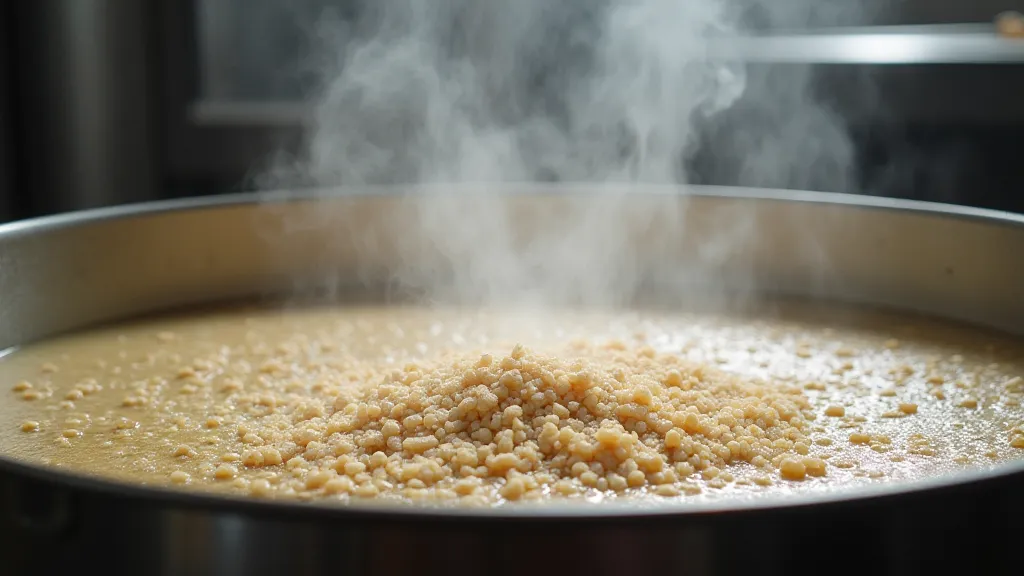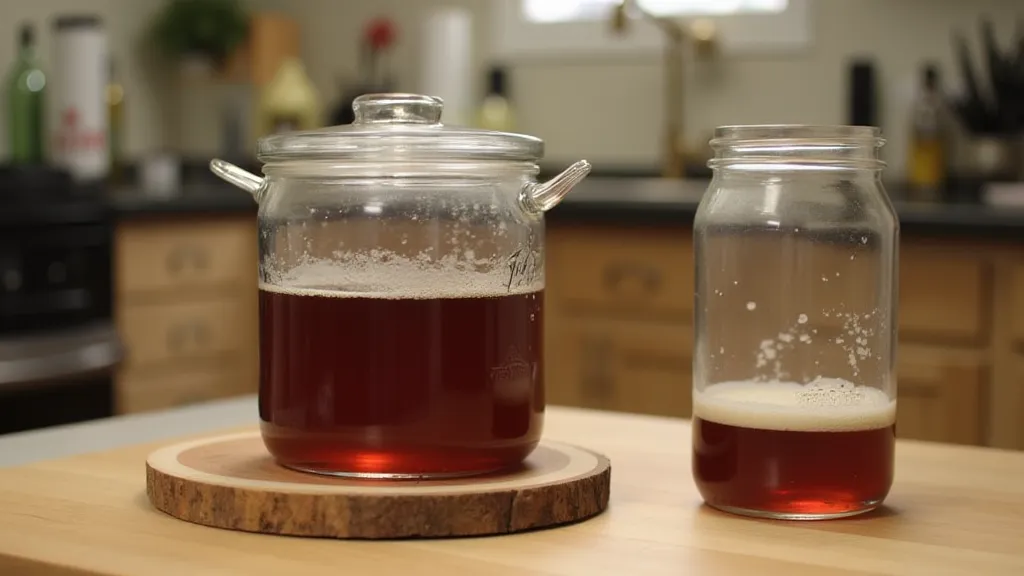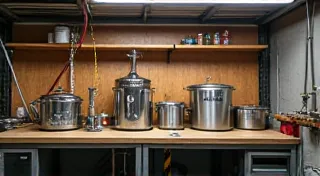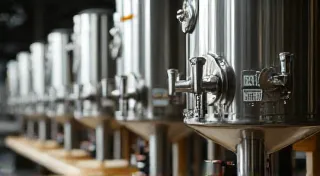Extract Brewing vs. All-Grain Brewing: What’s the Difference?
So, you’re diving into the world of home brewing! That's fantastic. One of the first decisions you’ll face is choosing a brewing method. The two primary approaches are extract brewing and all-grain brewing. Both get you to delicious, handcrafted beer, but they differ significantly in process, complexity, and control. This article breaks down the differences, highlighting the advantages and disadvantages of each.
What is Extract Brewing?
Extract brewing is the easiest and most beginner-friendly method. It involves using malt extract, which is essentially concentrated wort (the sugary liquid extracted from malted barley) that has been pre-processed. You’re bypassing the mashing process, where grains are steeped in hot water to convert starches into fermentable sugars. This simplification makes it ideal for those new to the hobby and looking for a quicker path to enjoying their own beer. Many brewers start their journey with extract brewing, as it provides a gentle introduction to the brewing process before tackling the complexities of all-grain techniques.

The process generally involves: boiling the extract with hops, adding flavorings, cooling the wort, and then pitching yeast. It's quicker, requires less equipment, and simplifies many of the complexities of brewing. Even with extract brewing, there are many options for different styles and flavors. Choosing a good starting recipe is key, and luckily, there are plenty of beginner-friendly beer recipes available to help you get started, covering everything from classic IPAs to refreshing lagers.
Advantages of Extract Brewing:
- Beginner-Friendly: Significantly easier to learn and execute.
- Faster Brewing Time: Shorter overall process due to skipping mashing.
- Less Equipment: Requires fewer specialized pieces of equipment.
- Consistent Results: Malt extract provides a more consistent starting point.
Disadvantages of Extract Brewing:
- Less Control: Limited ability to control the specific gravity and flavor profile.
- Limited Creativity: Can be more difficult to create truly unique or complex recipes.
- Higher Cost per Batch: Malt extract is more expensive than grains.
What is All-Grain Brewing?
All-grain brewing is a more advanced technique where you start with raw grains – typically malted barley – and perform the entire process, including mashing, lautering (separating the wort from the spent grains), and sparging (rinsing the grains to extract more sugars). This gives you a much higher degree of control over your beer’s characteristics. Think of it as going from a pre-made cake mix to baking from scratch; you have much more say in the final product, but also more responsibility. Successful all-grain brewing hinges on precise measurements and meticulous process control.

The process is considerably more involved, requiring careful attention to water temperature, mash pH, and grain-to-water ratios. Mastering the all-grain method also requires consideration of the ideal equipment to suit your production needs. The choice of fermenter itself can significantly impact the final product, and you’re wise to consider the pros and cons of choosing the right fermenter, whether opting for the cost-effectiveness of plastic or the potential purity of stainless steel.
Advantages of All-Grain Brewing:
- Maximum Control: Full control over the beer's flavor, body, and alcohol content.
- Increased Creativity: Ability to craft highly customized and unique recipes.
- Lower Cost per Batch: Grains are generally cheaper than malt extract.
- Deeper Understanding: Provides a more comprehensive understanding of the brewing process.
Disadvantages of All-Grain Brewing:
- Steeper Learning Curve: Requires more knowledge and experience.
- Longer Brewing Time: More time-consuming due to the mashing and lautering steps.
- More Equipment: Requires more specialized equipment, such as a mash tun and lauter tun.
- More Potential for Error: Requires more precise measurements and process control.
Which Method is Right for You?
The best brewing method depends on your experience level, time commitment, and desired level of control. If you’re a beginner looking for a quick and easy introduction to brewing, extract brewing is an excellent choice. As you gain experience and desire more control, all-grain brewing opens up a world of possibilities. Many brewers also consider the often-challenging process of getting a good fermentation, and the unexpected failures along the way. If you find your fermentation stalling, you're not alone, and there are helpful resources to help you troubleshooting stalled fermentation, and getting back on track.

Many brewers start with extract brewing and gradually transition to all-grain as their skills and equipment evolve. The leap to all-grain is often a significant one, as it introduces a whole new set of variables to manage. Beyond the brewing process itself, packaging and distributing your finished beer is another major consideration. The choice between bottling your beers, or going for the relative ease of kegging, is another major decision for many homebrewers, each carrying its own benefits and drawbacks. Understanding the bottling vs. kegging differences is a key step towards a successful homebrewing career.
Regardless of which path you choose, enjoy the journey of crafting your own delicious beer! From the initial planning stages to the final tasting, brewing should be a rewarding and enjoyable experience. Don’t be afraid to experiment, learn from your mistakes, and most importantly, have fun!





